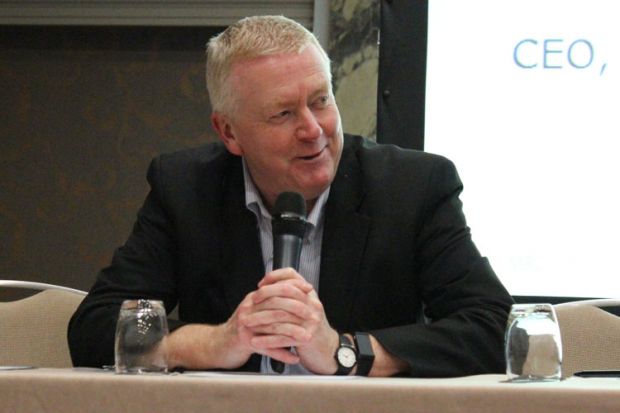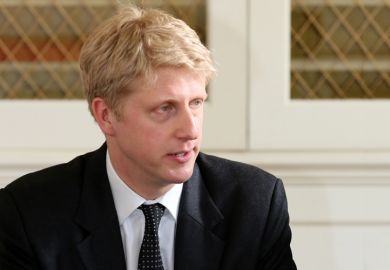The idea that merging the seven research councils could save money is an “illusion” as it would be likely to increase red tape instead, the chief executive of one of the bodies has warned.
In a robust defence of the councils’ independence, Sir John Savill, the head of the Medical Research Council, also told Times Higher Education that while he thought it was unlikely that the MRC faced being scrapped, “we cannot be complacent and assume that...it will be here after the spending review [in November]. It could have gone”.
His comments will intensify concerns that the councils face a radical reorganisation in the spending review, and came in the same week that universities minister Jo Johnson told the Universities UK conference that he wanted a “simpler system” of distributing research funding.
Two reviews are currently looking at how the research councils are organised.
The management consultants McKinsey have been commissioned by the business secretary Sajid Javid to carry out a review of all bodies funded by the department. It is thought that they are looking at having just one research council, or bringing them directly into BIS.
In parallel, Sir Paul Nurse, president of the Royal Society, is also reviewing the operations of the councils. His full report is set to be published before the end of the year, but preliminary conclusions have already informed Mr Johnson’s calls for a “simpler” structure, and will also feed into the spending review on 25 November.
Asked whether merging the research councils would save money, Sir John argued that “the experience in other countries is that it generates an extra layer of bureaucracy, it generates a period of uncertainty when funding becomes inward looking…and they lose competitiveness.”
Less than 3 per cent of the councils’ funding is spent on administration, he said. “I don’t think it would save money; it would be an illusion.”
Each council has a strong relationship with its respective area of industry, but bringing them into government could drive away this expertise, he said.
“All that would be lost if you simply said, ‘We’re an arm of government and we’re going to dish out grants’,” he said.
BIS has never officially confirmed the existence of the McKinsey review, news of which emerged in August. Sir John said he had not met with the company, nor did he know what its brief was.
He added that he thought it was “absolutely fine for reviews of public funding to go on” although “we [the research councils] seem to be reviewed quite a lot”.
As well as these two reviews, the research councils are also bracing themselves for possible major cuts in the BIS budget. The department has been asked by government to model reductions of between 25 and 40 per cent in the run-up to this year’s spending review.
In the last review in 2010, the research budget was held steady, but only in cash terms. Sir John said that while he would like to see research spending rise with inflation or pegged to gross domestic product, “I think that flat cash would be a jolly good outcome, even though it equates to a 10 per cent [real-terms] cut”.
“Scientists should realise that they’ve been incredibly privileged over the last five years. Other limbs of government have suffered huge cuts,” he said.
Yet a cut of 25 per cent or more would be “little short of catastrophic for the science base” and could spur major pharmaceutical companies to leave the UK for the US, France, Germany, Singapore or even China, he warned.
Sir John also said he would “die in a ditch” to protect the dual research funding system – a combination of “quality-related” block grant funding based on the results of the research excellence framework (QR), and competitive grants distributed by the research councils.
“The QR element is...very efficiently distributed, [with] tiny administration costs. It’s very flexible; it allows universities to develop particular interests,” he said.
Despite a perception by some sector leaders that Mr Johnson and Mr Javid were less approachable than the previous universities minister, Lord Willetts, Sir John said that he had met Mr Johnson and found him “extremely clever, reflective” and someone who “listens to the arguments”.
He had not yet met Mr Javid, he said, but added: “Nor would I expect to do so early in a Parliament.”
POSTSCRIPT:
Print headline: MRC chief: ‘illusion’ that council mergers will save money
Register to continue
Why register?
- Registration is free and only takes a moment
- Once registered, you can read 3 articles a month
- Sign up for our newsletter
Subscribe
Or subscribe for unlimited access to:
- Unlimited access to news, views, insights & reviews
- Digital editions
- Digital access to THE’s university and college rankings analysis
Already registered or a current subscriber?







